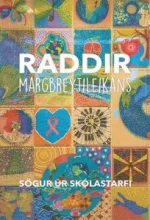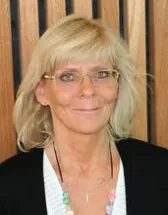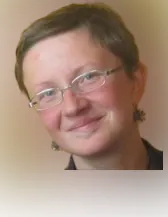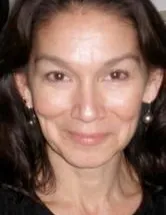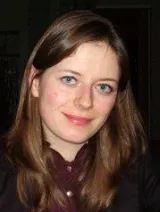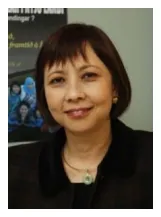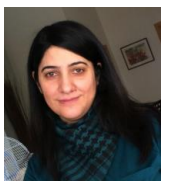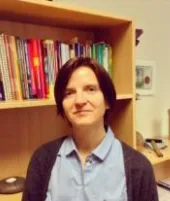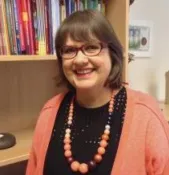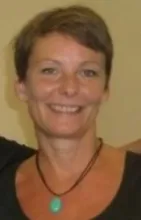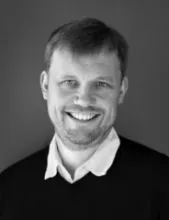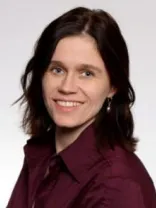The main objective of the three-year project (January 2013-December 2015) was to draw lessons from success stories of individual immigrant students and whole school communities at different levels that have succeeded in developing learning contexts that are equitable and socially just.
Learning spaces refer to school communities as well as other learning environments and practices than schools, which may be important or instrumental for the young immigrants’ participation and success. In the project, students’ success is defined as social as well as academic. By identifying success stories and good practices our aim was to provide guidelines for teaching and school reform based on these strategies.
Two main aims of the study are to:
- understand and learn from the experiences of immigrant students who have succeeded academically and socially and
- explore and understand how social justice is implemented in equitable and successful diverse Nordic school contexts and other learning spaces.
The project integrates the following four subthemes and main research areas that are clearly interrelated.
The main aims of this research area are to identify and describe the experiences and aspirations of children and young adults of immigrant backgrounds in each country who have been successful academically and socially. Key research questions are:
- What learning environments and practices (schools and others) seem to be instrumental for young immigrants’ participation and success in their schools and society and how do they describe their situation, motivations as well as obstacles?
- What are the young immigrants’ expectations of teachers and curriculum?
- How do students experience belonging to different groups and what are their aspirations in these settings? What are the immigrant children’s and young adults’ language backgrounds, language learning environments, and attitudes towards their culture of origin and their majority Nordic culture and society?
The main aim of this research area is to identify how schools engage with students and society to promote, develop and sustain inclusive teaching practices based on social justice. Furthermore, to explore how teachers create inclusive spaces within their classrooms that allow them to identify, respond to and build on the multiple experiences, linguistic and cultural backgrounds of their students, including the main obstacles the students face. Key research questions are:
- What particular roles and practices can be identified in teachers’ work with diverse groups of children and parents?
- What sort of professional development do educational authorities offer teachers to help them to work with children of multiple backgrounds and how effective is it?
- What are the common pedagogical characteristics of teachers who meet diverse students’ expectations and actively promote social justice and equality?
- How do teachers of immigrant background identify their role in particular as facilitators in empowering immigrant students?
- How does student diversity influence teachers’ work?
The main aim of this research area is to explore how leadership promotes and sustains democratic participation, inclusive practices and collaboration of students, teachers, and parents and to identify the main obstacles for forming a collaborative school culture. Key research questions are:
- How do democratic participation and involvement of teachers, students and parents represent themselves in the schools and how is diversity reflected in the school communities?
- How do teachers, students and parents experience their school community in terms of chances for involvement and access to decision-making?
- How is diversity regarded in their school community and how is it reflected in school policy, curricula and practices?
- How are the visions of leaders and the stated policies of the schools consistent with and reflected in the experiences of the teachers, parents and students?
- How do the schools ensure that adequate resources are available to students so that equal opportunities for learning are created?
The main aim of this research area is to identify the main criteria relating to equity, inclusion, democracy and social justice in policy documents of the participating schools as well as in national educational policies and national curriculum guidelines. The key research question is:
- How are equity, inclusion, democracy and social justice reflected in policy documents and curricula on national and school levels?
In this report, we introduce and discuss the main findings within the four research areas from all four countries.
Mixed methods were applied in the project and each country research group collected data according to the following research model:
Case studies were conducted in schools on three levels (preschools, primary and secondary schools) in urban and rural contexts in each of the four Nordic countries. Sampling was purposive in that all the participating schools were judged to be successful in implementing social justice and creating inclusive learning spaces for all students.
For school selection indicators such as average grades, test scores and drop out rates were used, as well as evaluations and judgement of school authorities. Focus groups, semi-structured interviews, participant observation and questionnaires were used for data collection in the schools, using a framework created by the research team.
Document analysis included conversation and discourse analyses. In order to gain a deep understanding of inclusive practices, semi-structured in-depth interviews were conducted with teachers from each of the schools. All the school principals were interviewed individually.
The participating teachers were purposefully selected according to the main criteria that they teach students with immigrant backgrounds. Students’ experiences of success were collected through in-depth interviews with students of immigrant origin in schools in all countries.
Participants were purposefully selected by asking school principals and teachers to identify and select students who were considered to be examples of success. The in-depth study included a variety of research methods, such as semi-structured in-depth interviews in a language of the students’ choice, diaries (textual, pictorial or digital), and participant observation (including shadowing), all used in order to gain deep understanding of the different factors involved in the success of each individual. Where relevant, parents of the students and children were selected for semi-structured in-depth interviews in a language of their choice.
National curriculum guides, laws and regulations on education in each of the four countries were analysed, in addition to school policies and curricula developed in each school. Analysis took place concurrently through the research period using qualitative procedures of content analysis, coding and constant comparison.
Finally, an electronic questionnaire was sent to all staff in all participating schools in the project. The survey covered issues of educational policy, support from politicians and educational authorities, the school community, leadership, staff, organization, students/children and parents.
Our research findings reveal a variety of interesting educational practices within and across the four countries, although there are many similarities in policies, structures and organization.
Policies and curricula
The policies of the preschools in all countries are child centred and emphasize holistic view of learning that focuses on care, play and active participation. They emphasize creating a community for all children. This is reflected in active communication with parents and children across languages and cultures.
The policies of the compulsory schools (elementary and lower secondary) emphasize diversity and inclusion and cooperation between teachers. Cooperation with parents is also an important part of the policies. Structures differ slightly between the schools although they generally organize introductory divisions or reception units around the immigrant children. There are, however, examples of schools that have a model of direct integration. In most of the schools the students belong to a regular class and have their supervisory teacher, and their attendance in the units depends on their needs and pace of learning.
In the upper secondary schools the policies emphasize that the student acquire knowledge to be able to think independently and critically so they can actively participate in society. The schools have a variety of programmes and support to facilitate the integration of immigrant students. Policies indicate understanding and empathy for immigrant students.
Leadership
Leadership in the preschools is democratic and the structure and organization does not differentiate immigrant children. Leaders are supportive and participative and strive to ensure democratic participation of all children. The leaders in some of the schools work in very demanding conditions, for example with low staff retention and staff that does not have preschool teacher education. In some cases the leaders and teachers lack the initiatives of reaching out to the immigrant parents.
Leadership in the compulsory schools generally has a democratic approach and can be characterized as participative and supportive. The leaders’ aim is to create an inclusive school culture and support diversity and social justice. They emphasize respecting difference and thinking positively about diversity.
In the upper secondary schools, organizational structures have been created for teaching the majority languages. These are independent units or departments led by heads of departments that have knowledge and interest in the matters of immigrant students. The leaders are preoccupied with the social isolation of the students and have developed ways to counteract this.
Teachers
The teachers in the preschools generally emphasize individually based care and learning, diversity and equality. Educational practices are generally child-centred and based on diversity, with the aim of involving all children in active participation. Some of the teachers have specialized in education for diversity, but this does not apply to all teachers. Some missed learning opportunities were observed, where the teachers lacked the initiative to involve immigrant children in the activities. Scaffolding opportunities were not used to the full extent.
Teachers in the compulsory schools generally emphasize the importance of creating a welcoming and trusting learning environment for students. They understand the importance of linguistic diversity as a resource, while also acknowledging the importance for the students’ future of learning the majority language. The teachers also emphasize cooperation with parents.
The varied experiences of the teachers in the upper secondary schools of living and studying abroad provided them with an understanding and insight into multicultural issues. Some of the teachers had a strong vision for teaching immigrant students. However, their practices varied and while some teachers emphasized the majority language acquisition, others had a more holistic view, emphasizing the students’ personal and social development, as well as academic learning.
Students and children
Most of the immigrant children in the preschools were active and seemed to be included in play. In some of the preschools, the majority language was the “proper” language to use, while other preschools encouraged the use of many languages. There were some cases of missed learning opportunities, where the teachers lacked the initiative to involve immigrant children in the activities and the children seemed to be marginalized.
The students interviewed and observed in the compulsory schools emphasize their teachers and their schools as reasons for their success. Some describe their teachers as caring, kind and genuinely concerned with their well-being and success. Generally, the students appear to be active in their schools and both academically and socially successful. However, challenges appear in both of the models, the reception model and the model of direct integration. Some of the students in the reception model find it difficult to relate to and make friends with children in the regular class. And some of the students in the model of direct integration feel insecure and find it an overwhelming experience.
Overall, the students in the upper secondary schools appeared to be very positive about their schools and many of their teachers. They appreciated that their teachers showed personal interest in them and cared for their well-being. They also talked about the importance of having a demanding school environment. Most of these students had friends from immigrant backgrounds, while some also had Icelandic friends.
- Educating teachers for diversity:
- Formal training and education on multilingualism and communication across linguistic and cultural differences.
- Formal training and education in multicultural education.
- Formal training and education in teaching (Finnish, Icelandic, Norwegian, Swedish) second languages.
- Immigrant students’ education should be the responsibility of all teachers, not only teachers in introductory or reception units. Therefore all teachers need to be involved in the education of newly-arrived students.
- Teachers and leaders need to be more ambitious in the education of minority language children.
- Importance of building on all languages and supporting multilingualism.
- Increase the number of mother tongue teachers for teaching mother languages and supporting immigrant children.
- Importance of a holistic approach where social as well as academic success is emphasized.
- Importance of sustainable leadership and measures for sustaining knowledge and good practices.
- Cooperation between schools (teachers and leaders) and sharing of experiences, practices and ideas.
- Cooperation with parents.
- Continued professional development.
- Improve access of immigrant students to upper secondary school.
Ragnarsdóttir, H. & Kulbrandstad, L. A. (Ritstjórar, 2018). Learning spaces for inclusion and social justice: Success stories from four Nordic countries. Newcastle upon Tyne: Cambridge Scholars Publishing. https://www.cambridgescholars.com/product/978-1-5275-1400-3
Netla's special issue on the Icelandic results of the LSP project (in Icelandic)
Extract from Netla
Learning Spaces for Inclusion and Social Justice: Success Stories from Immigrant Students and School Communities in Four Nordic Countries.
The focus in this special issue will be on the findings of the research project Learning Spaces for Inclusion and Social Justice: Success Stories from Immigrant Students and School Communities in Four Nordic Countries. The main aim of the three-year project (2013–2015) which was conducted in Finland, Iceland, Norway and Sweden was to draw lessons from success stories of individual immigrant students and whole school communities at different levels that have succeeded in developing learning contexts that are equitable and socially just.
Learning spaces refer to school communities as well as other learning environments and practices than schools, which may be important or instrumental for the young immigrants’ participation and success.
In the project, students’ success is defined as social as well as academic. By identifying success stories and good practices our aim was to provide guidelines for teaching and school reform based on these strategies.
Two main aims of the study are to 1) understand and learn from the experiences of immigrant students who have succeeded academically and socially and 2) explore and understand how social justice is implemented in equitable and successful diverse Nordic school contexts and other learning spaces.
The project integrates the following four subthemes and main research areas:
A. Students: Experiences and aspirations of immigrant students
B. Teachers’ professional development, pedagogy and teaching practices: Teachers as agents and facilitators of inclusion
C. Leadership, collaboration and school cultures: Promotion of democratic participation and collaboration of students, teachers, and parents; and
D. Policies and curricula: Main criteria relating to equity, inclusion and social justice in educational policy, national curriculum guidelines, school policy and curricula.
(Hanna Ragnarsdóttir, 2015).
Bókin Raddir margbreytileikans sem er byggð á gögnum úr LSP verkefni o.fl..
Edda Óskarsdóttir, Hanna Ragnarsdóttir og Samúel Lefever. (Ritstjórar, 2019). Raddir margbreytileikans: Sögur úr skólastarfi. Reykjavík: Háskóli Íslands, Menntavísindastofnun
https://www.boksala.is/product/raddir-margbreytileikans-sogur-ur/
Hanna Ragnarsdóttir hannar@hi.is is the project leader. She is Professor of Multicultural Studies at
the University of Iceland, School of Education. She completed a B.A. degree in anthropology and history from the University of Iceland in 1984, an M.Sc.degree in anthropology from the London School of Economics and Political Science in 1986 and a Dr.philos in education from the University of Oslo in 2007. Her research has mainly focused on immigrants (children, adults and families) in Icelandic society and schools, multicultural education and school reform. She has published widely on these issues in international and national journals.
Renata Emilsson Peskova rep1@hi.is is a PhD student at the University of Iceland, School of Education. Her research interest lies with plurilingual students and heritage language learning in formal and informal settings. She has worked as a language teacher for over fifteen years and is currently chairing an NGO that coordinates heritage language classes in Reykjavík.
Sue Gollifer susangollifer@yahoo.co.uk is a doctoral student and teacher assistant at the School of Education, University of Iceland. She has published on citizenship and human rights education, multicultural education policy and marginalised women’s success in overcoming political exclusion. She has worked on education and development projects in Cambodia for over twenty years and is currently working on an EdD study that explores how human rights education in upper secondary schools in Iceland is represented by ten teachers and their stories.
Anna Katarzyna Wozniczka akw1@hi.is is a PhD student in educational sciences at the University of Iceland with a background in education studies and international relations from Poland, Spain and Iceland.
Anh-Dao Tran adk3@hi.is Tran’s field of studies is multicultural education with the focus on upper secondary level. Her dissertation has the title Difficient Foreigners or Untapped Resources: Students of Vietnamese Background in Icelandic Upper Schools. Her MA was in teaching hearing-impaired students. She left her home country, VietNam at the end of the war in 1975. She has found that being able to work with other members of the team from different countries in the Learning Spaces Project has broadened her perspectives in her field of studies.
Susan Rafik Hama srh2@hi.is is a PhD student at the School of Education, University of Iceland. She completed her MEd in adult education and human resources development from the University of Iceland, a BA degree in Icelandic as a second language in 2011, and a teaching certificate in 2008 from the same university. She also completed a BA in English from Salahaddin University in 1997 and a diploma in pedagogy from the Institute of Education in Suleimany in Iraqi Kurdistan in 1993.
Samúel Lefever samuel@hi.is is an Associate Professor at the University of Iceland and has taught English and language teaching methodology in the School of Education since the year 2000. He has a MA in Education with emphasis on Teaching English as a Second Language from the University of Kansas, USA. He has done research on incidental language learning and English skills of young children in Iceland and took part in research conducted by the University of Iceland on the changing status of English in Iceland and its impact on the learning and teaching of English. He also works
in the area of second language learning and is currently looking at young immigrants’ language use and participation in Icelandic schools and society.
Hildur Blöndal Sveinsdóttir hildsvei@hi.is is a doctoral student (PhD) at the University of Iceland, School of Education and a former Adjunct Lecturer. She has a MEd in Multicultural education and her research has mainly focused on global mobility, multicultural education and immigrant issues in Icelandic schools and society. She has published both nationally and internationally on issues relating to multicultural education, international education and empowerment.
Edda Óskarsdóttir edo@hi.is is a research assistant and currently pursuing her doctorate at University of Iceland. She has 19 years of experience as a special education teacher and coordinator of support services at the compulsory school level in Iceland. Her research is a self-study of inclusive practices and how special needs education can be inclusive practice.
Hafdís Guðjónsdóttir hafdgud@hi.is is a professor at the University of Iceland, School of Education. Previously she worked for 25 years as a general classroom teacher and special educator in compulsory schools. She completed her PhD at the University of Oregon in 2000. Hafdís has collaborated with colleagues from Europe, Australia and United States on projects focusing on inclusive practices and multicultural education, teacher education, and self-study of teacher education practices. Her research interests are in the area of inclusive and multicultural education practices, pedagogy, teacher development and professionalism.
Börkur Hansen borkur@hi.is is a professor at the School of Education, University of Iceland. He finished a BA degree in education and psychology from the University of Iceland in 1982, and a PhD from the University of Alberta in 1987. His major research interests are in the area of leadership, school management, school development and educational governance.
Fríða Jónsdóttir frida.b.jonsdottir@reykjavik.is is a PhD student at the School of Education, University of Iceland. She is also a project director and consultant for multicultural preschool education at the City of Reykjavík Department of Education and Youth. Her main research interest lies within multicultural early childhood education with a special focus on linguistic development of multilingual children and educational partnership with parents. She graduated with an MEd in Multicultural Education in 2011.
Helgi Þorbjörn Svavarsson hths11@hi.is is a PhD student at the school of Education, University of Iceland. He is also a project manager at Eyjafjörður lifelong learning centre (SÍMEY) in Akureyri, Iceland. His main research interest is in educational leadership in diverse schools with special focus on democracy and social justice. Helgi has a background in music education and performs regularly as a professional horn player in orchestras, ensembles and as a soloist.
Robert Berman robertb@hi.is is an Associate Professor at the University of Iceland. He has an MA from the Ontario Institute for Studies in Education, University of Toronto and a PhD from the University of Lancaster in English: Linguistics research. He has taught at every school level: Grades 6-8 on a Native Reserve in Canada; at a secondary school in Iceland; at a community college in Toronto; and at universities in Canada and Iceland. He directed the English Language Program at the University of Alberta for eight years. He has also worked as a taxi driver, an airplane navigator and a barman. Multicultural and intercultural education have long been among his interests. However, it was only after joining the LSP team that he began to research (language-related questions) within the field, work he finds especially rewarding.
Karen Rut Gísladóttir karenrut@hi.is is an Assistant Professor in the School of Education at the
University of Iceland. She completed her PhD in Education in 2011 from the University of Iceland. Her research interests include multicultural education, sociocultural research on literacy and language teaching and learning and self-study of teacher education practices. Her research methods are qualitative action research, teacher research and self-study.
